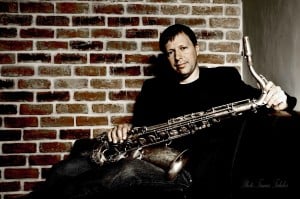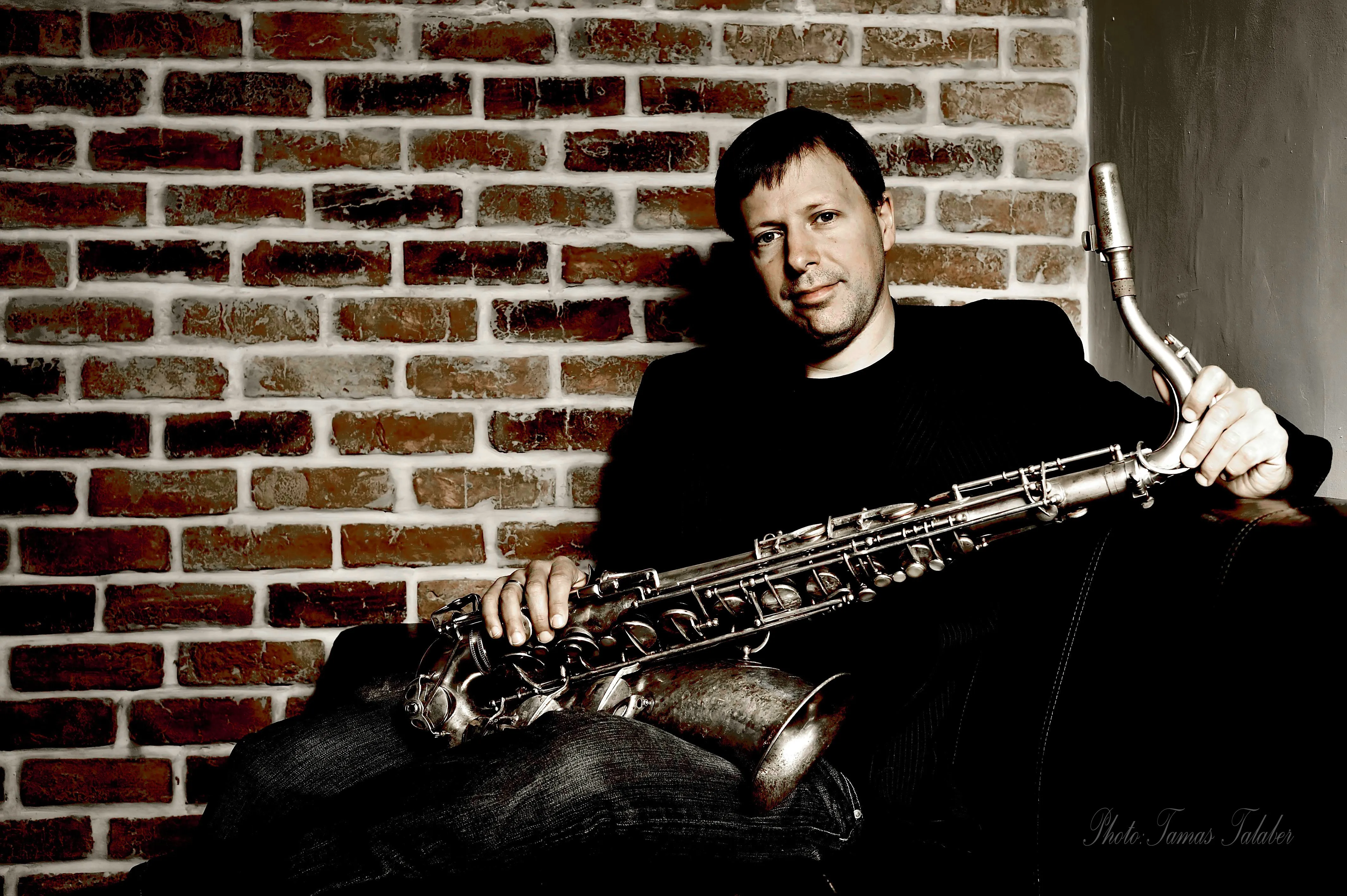
Fresh off a fantastic show earlier this month at the Stanford Jazz Festival, jazz saxophonist Chris Potter sat down with Intermission to discuss influences on his work, his experiences as both a bandleader and a sideman and the demands of being creative.
Intermission: You play around with lots of people, as a sideman and a bandleader. What’s the trade-off between getting new ideas and really understanding and communicating with a core group?
Chris Potter: The reality of the jazz business is it’s very, very hard to work with the same group all the time. Almost everyone I know, whether they’re working mostly as a leader or mostly as a sideman, [does] different things. There is something about being with one group: after a six-week tour, you really know each other’s music and playing. But it’s nice to have some variety, as well. Sometimes you take a year off from a particular group, and then you come back. And when you do, everyone’s got different things they’ve been doing, different influences, and you end up bringing that to the music you’re playing to. It doesn’t feel like it gets stale. It always feels like everyone comes in with a fresh attitude.
Intermission: One of the trademarks of the groups you play with is just the amount of listening that goes on between all members. It’s very collaborative. How do you achieve that?
Chris Potter: In this music, it’s so much about improvisation and responding to a moment at hand. Because ultimately, music, for me, is about the energy of it, about the people involved and the expression of the personality, and the interactions between people is always much more rich and interesting and complex than anything that you could compose, I feel like. So listening and reacting to each other is where the real life of the music happens. It’s important to write music that will set up good situations that will allow that to happen.
Intermission: How do you write music to set up those situations?
Chris Potter: There’s a certain Zen to it. You have to know the musical personalities involved and write to that. But it’s also about the things that you don’t write. You don’t want to overwrite. You want to leave some room for everybody to do their thing. There are real musical risks if you approach things this way. The more open you leave it, there’s a real possibility that, even some great musicians, on a particular night, they’re just not going to find it. It just might not work. But on a really good night, when things really are happening, it’s extra special if there’s that room for magic moments to appear. It’s really like kind of a group composition. It’s worth the times they don’t appear; that’s part of the process.
That’s a lot of being a bandleader, figuring out how much of that risk of failure are you willing to live with? How much are you willing to let things be completely unstructured so that they can form themselves? Or, how much structure do you want to shape it [with], and at least have something to fall back on? I don’t really feel that there’s a right or wrong way to do it. I’m a fan of all different kinds of music: some of it’s extremely arranged and some of it’s very free. I think it can all work.
Intermission: What are you talking about when you talk about a piece that’s extremely arranged?
Chris Potter: That would translate into more notes written on the page, literally. For example, with the saxophone quartet, that was a situation where we really did have to write a lot of stuff out because it needs that kind of structure. Whereas, with some other groups, most of the music for “the Sirens,” I think those tunes were all about one page long of written music. There were a couple of pieces that might even just be two lines, really. But built on that structure, we could go for days.
Intermission: There are plenty of recordings from 50-plus years ago that most people agree changed the way we play jazz (Kind of Blue, Giant Steps…). What are the more recent albums that have had an impact the way you and other current musicians think about jazz?
Chris Potter: The music that I listen to that’s more recent, a lot of it is not necessarily jazz but maybe [is] classical or pop. I don’t know why that is exactly. It might be that I’m just too close to it. A lot of the jazz records that are being made are by people that I know and am friends with. I know them personally, so I go out to listen to them whenever I have the chance. I don’t feel influenced by them the same way as when I listen to a Coltrane record. I might listen to their records and say, “OK yeah, he really expressed himself well on this one.” But that’s a lot different from listening to Coltrane, whom I never had a chance to hear in person. And I think if I wasn’t in the middle of the scene, in New York, it’d be a very different scenario.
